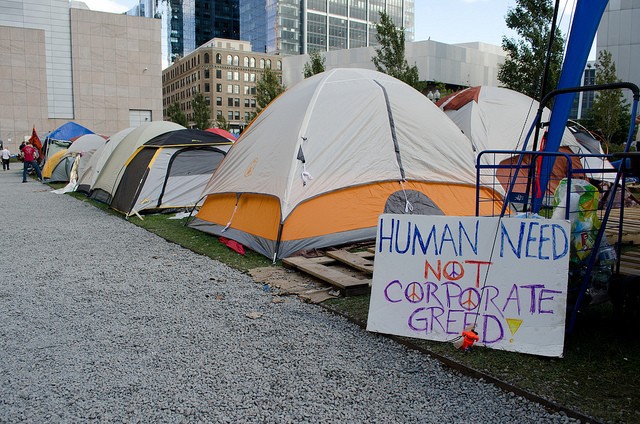The Billfold Book Club: Karl Taro Greenfeld’s ‘The Subprimes’

It is hard to read the final chapters of Karl Taro Greenfeld’s The Subprimes and not think of Bree Newsome climbing the flagpole outside the South Carolina State House to take down the Confederate flag. Greenfeld created a novel that is close enough to our future that it almost seems predictive, and he got this part right as well: when our culture refuses to change, sometimes you have to climb up the symbolic and prohibitive structure yourself and make the change on your own.
The comparison really ends there, though; The Subprimes, despite the multiracial, magical realism woman at its center, is overwhelmingly about white people adjusting to life in a new lower class. It is not about race, except when it is; the casual “anti-immigration legislation had driven out the Latinos” comment near the beginning, for example, as if there weren’t currently 54 million people who identify as Latino or Hispanic in the United States.
There are characters of color, but they live in the background of the story — the lawyer who helps Richie get his plea bargain is black, for example — and, immigration comments notwithstanding, there is very little active racial discrimination in this world, even though it is hard to imagine a world where both money and resources are in short supply and race does not factor into who gets privileges and who doesn’t.
So, okay, The Subprimes might not win points for intersectionality, especially with Sargam, its one featured character of color, being literally magical. Let’s change subjects and look at the way Greenfeld depicts our near-future economy.
In the world of The Subprimes, nearly every job is either automated, distilled down to a corporate directive, or both; Subway Fresh Take Paul Revere Middle School teachers wear headsets and repeat prompted corporate messages, and Uber Lawyers push clients to accept plea bargains that increase in cost every 40 seconds. Bloggers, thankfully, are still valued for their individual voices and their ability to quickly digest and share news. (I’m glad to know that in the world of The Subprimes, I’ll still have a job. Or should I feel guilty, when so many other people in that future don’t?)
The minimum wage is gone, unemployment pay and welfare are handed out in the form of fast-food meal vouchers, and people are banding together to form their own tent cities — or, in the case of Valence, a thriving intentional community.
All of this makes terrible sense; I don’t actually see us living in a future where we’re given fast-food vouchers instead of welfare, but I could see a future where teachers wear headsets and recite a single standardized curriculum, and I could definitely see Uber Lawyer.
More importantly, I could see a future where people, priced out of both homes and rentals, form their own tent cities and intentional communities. It’s already being done in Seattle, and probably other places as well. And yes, officials often try to shut down these communities as soon as they are formed. Then they pass laws making it illegal to collect rainwater, or they put spikes on sidewalks, and otherwise make life that much harder for people who just want to get by.
We won’t have a future where you have to show your credit score to cross state lines, but we might have a future where rent increases put more people on the streets. We might have a future where professions like lawyer flip over into low-paid gig economy positions; lawyers already work in billable hours, so why not take that model to its logical, Uberrific extreme?
Lastly, on Sargam: I felt, at the end of the story, kind of like I did after watching Star Trek Into Darkness. Sargam has the magical ability to revive the dead? What society would not immediately commodify her, maybe taking her to a comfortable compound where she can spend hours every day bringing the dead back to life? (And you know only the rich would be able to pay for resurrection services.) It made the story feel weaker, for me, to know that she had superpowers. It would have been enough for her to be a leader, and would have made the community of Valence feel more like something humans could actually achieve, in the near future when we might actually have to.
What did you think of The Subprimes? Did any of it remind you of our current economy, and the future where we might be headed? Do you think you’d be able to thrive in an intentional community? Did you like the magical ending?
Photo credit: Tim Pierce
Support The Billfold
The Billfold continues to exist thanks to support from our readers. Help us continue to do our work by making a monthly pledge on Patreon or a one-time-only contribution through PayPal.
Comments